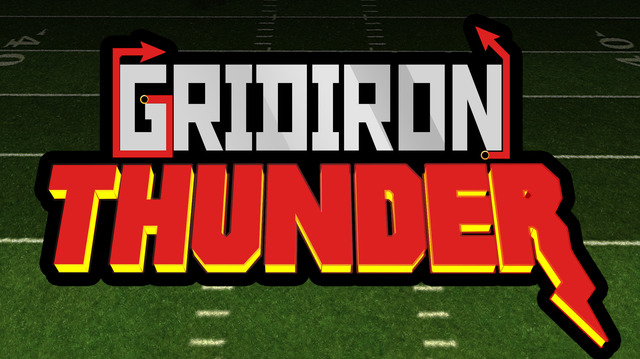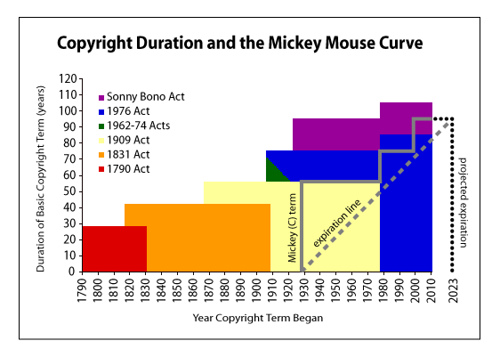A couple of weeks back, we wrote a story about Candy Crush Saga creator King filing for broad trademarks on the individual words “candy” and…
Leave a CommentCategory: Game Controversies
There is a bit of a hubbub about video games and copyright going on right now. It all started with a post over on Rock Paper Shotgun about why John Walker thought that games need to enter the public domain. He has a lot to say and I recommend reading the whole thing before commenting on anything he has said. The short version is that too many games are lost to time and not available for anyone to purchase. If those games had entered the public domain, they would be more accessible for modern gamers.
Naturally, these comments got a lot of people in the games industry riled up. Not all comments were knee-jerk. There were some thoughtful ones. Particularly a post by Steve Gaynor, one of the Gone Home developers, made some great arguments about how back catalogs of games and other media help fund new works. Another great response was from Paul Taylor, Joint Managing Director of Mode 7 Games. In this one, Paul discussed the public domain and how living creators may feel when their works entered the public domain during their lives.
But I want to look at this in a slightly different direction, that of the game consumer. What does it mean for them if games don’t enter the public domain? First I want to show something that I think many of you may have seen. This is what is called the “Mickey Mouse Curve” of copyright extensions.
This graph shows the changes in copyright duration throughout US history. In the latter half of the graph, you see a correlation of copyright term extensions and the expiration date of Steamboat Willie’s copyright. Every time Steamboat Willie was about to enter the public domain, Disney lobbied Congress for an extension. It will once again be coming up for expiration in a few years, and we will probably revisit this debate.
4 CommentsEarlier this week, Ben Kuchera of the Penny-Arcade Report got into some trouble over a review he wrote about the game Beyond: Two Souls. In that review, he found the gameplay to not be engaging or fun and the story to be derivative and weak, to put it mildly. However the main point of contention was not his final opinion on the game, but rather on the fact that he didn’t play the game all the way through.
This got me thinking, does a game reviewer have to play the whole game in order to write the final review? Should game reviewers be forced to play terrible games all the way through before telling the world they are terrible? Would you expect your friend to have played a game all the way through before telling you to not waste your time or money on it? Would you be willing to sit and play a game you are not enjoying all the way through before saying you are done? Why do we have such high expectations of game reviewers when we don’t set the for ourselves or close friends?
Leave a CommentGold Fire Studios recently learned that its latest gameplay trailer for Casino RPG has been hit with a terms of service violation and has been removed…
Leave a Comment Wow a lot happened today. I had originally planned on writing a story about yet another game project being swept up in the Free The Games Fund controversy. Earlier this week, Dungeons The Eye of Draconus had funded itself to $50,000 using money from the father of one of the developers. Then a lot happened that ended in Dungeons being delisted from the FTG website and the Kickstarter for the game being cancelled. It was crazy.
Wow a lot happened today. I had originally planned on writing a story about yet another game project being swept up in the Free The Games Fund controversy. Earlier this week, Dungeons The Eye of Draconus had funded itself to $50,000 using money from the father of one of the developers. Then a lot happened that ended in Dungeons being delisted from the FTG website and the Kickstarter for the game being cancelled. It was crazy.
I had been trying to get information from both the developer and Ouya in regards to what had happened and received responses from both at the same time. While Dungeons has been cancelled, it was unclear why it might have been delisted. William McDonald was not sure why Ouya had done it, but assumed it was because of the controversy. But now things are more clear.
Leave a Comment Ever since the controversies over Gridiron Thunder and Elementary, My Dear Holmes hit, people have been clamoring for a response from someone at Ouya. The one response that we did get wasn’t satisfying. We sent emails to the Ouya team for further comment with no response. People have tweeted them with no response. People wanted to know how Ouya would face these controversies.
Ever since the controversies over Gridiron Thunder and Elementary, My Dear Holmes hit, people have been clamoring for a response from someone at Ouya. The one response that we did get wasn’t satisfying. We sent emails to the Ouya team for further comment with no response. People have tweeted them with no response. People wanted to know how Ouya would face these controversies.
Well, in a sense, Ouya has responded further. It is certainly not the response that people expected, nor is it generally the response people needed. What Ouya responded with was a complete hand wave away from the controversies. It isn’t a bad response when taken in a bubble, but it fails to address the fears and concerns people have about the present and future of the Free The Games Fund.
Leave a Comment Just yesterday, the other controversial Ouya Kickstarter, Gridiron Thunder, reached, exceeded, and successfully finished its funding. This campaign, while controversial in nature, was a far different controversy than the one for Elementary, My Dear Holmes. Where Elementary was controversial for the seemingly high number of fake accounts backing it, Gridiron was controversial for the low number of backers and the vast amount of funds raised by them.
Just yesterday, the other controversial Ouya Kickstarter, Gridiron Thunder, reached, exceeded, and successfully finished its funding. This campaign, while controversial in nature, was a far different controversy than the one for Elementary, My Dear Holmes. Where Elementary was controversial for the seemingly high number of fake accounts backing it, Gridiron was controversial for the low number of backers and the vast amount of funds raised by them.
Closing out with only 183 backers, Gridiron raised $171,009 in thirty days. That is about $934 raised per backer. This seems to be because the vast majority of the funds raised were done via $10,000 pledges. While there are no rules against pledging high amounts, neither by Kickstarter nor Ouya, it has called into question just who actually wants to see this game made.
Leave a Comment The campaign for the controversial Ouya exclusive game Elementary, My Dear Holmes has been suspended as of Friday, September 6. This game, had it not been suspended, would have qualified for Ouya matching funds for the Free The Games program. However, Elementary had been plagued with controversy since shortly after starting due to numerous seemingly fake accounts backing it and pushing it to full funding within a few days of launching.
The campaign for the controversial Ouya exclusive game Elementary, My Dear Holmes has been suspended as of Friday, September 6. This game, had it not been suspended, would have qualified for Ouya matching funds for the Free The Games program. However, Elementary had been plagued with controversy since shortly after starting due to numerous seemingly fake accounts backing it and pushing it to full funding within a few days of launching.
Kickstarter has given no word to any backers nor to the project’s creator on why it has been suspended. We asked Sam Chandola what he knew about the suspension and he was not sure as Kickstarter doesn’t provide that information. In a message sent to backers, Sam reaffirms that he had been trying to verify the authenticity of the alleged fake accounts.
Leave a CommentIt looks like this week is going to be “controversial game can’t get published” week. Earlier we wrote about how Microsoft refused to publish Heavy Rain due to its theme of kidnapped children. Next we have a story about Imagination Is The Only Escape which was unable to get published in 2008 and is now making a comeback through crowdfunding. Now comes news that The Binding Of Isaac won’t see a 3DS release because of its religious themes.
That’s right. The popular game about a boy whose mother believes she hears the voice of God telling her to kill her son was refused a 3DS release by Nintendo. For those who don’t know, The Binding Of Isaac is a parody of the Biblical story of Abraham and his son Isaac. In the story, Abraham is commanded by God to sacrifice his son Isaac. At the last moment, right before Abraham was about to kill his son, God stops him and declares that Abraham passed the test of loyalty to God.
In Binding, that story is parodied in such a way as to depict the mother of Isaac as crazy. Isaac, not wishing to die escapes through the basement and sewers and fights many monsters representing the seven deadly sins and more. It is because of that parody of a religious story that Nintendo refused to allow it on the 3DS.
Leave a CommentIt should be of no surprise to learn that the mainstream video game industry has a severe aversion to mature themes in video games. I am not talking about M rated games. We have plenty of those. I am not talking about AO rated games. Those don’t really constitute maturity any more than M rated games. I am talking about mature themes. Themes that are meant to draw out emotions other than “Oh wow!!! Did you see that explosion?!?!?!”
If you look back over the years, you will find stories of games that were rejected by major publishers and console companies because they felt the theme was too bold. One such game was the DS game Imagination Is The Only Escape which told the story of a young holocaust victim as he tried to escape reality through his imagination. The game was cancelled because the topic was too controversial. Another more recent game was Six Days In Fallujah which was cancelled by Konami over concerns that it made light of war and that battle in particular. I am barely scratching the surface here.
We now learn that if it weren’t for Sony taking a chance, we may not have had one of the most critically acclaimed games, even if it wasn’t one of the best selling games, in recent history. When developer Quantic Dreams was shopping around the idea of Heavy Rain to prospective publishers, Microsoft felt the theme of kidnapped children was too mature and controversial to address.
Leave a Comment



